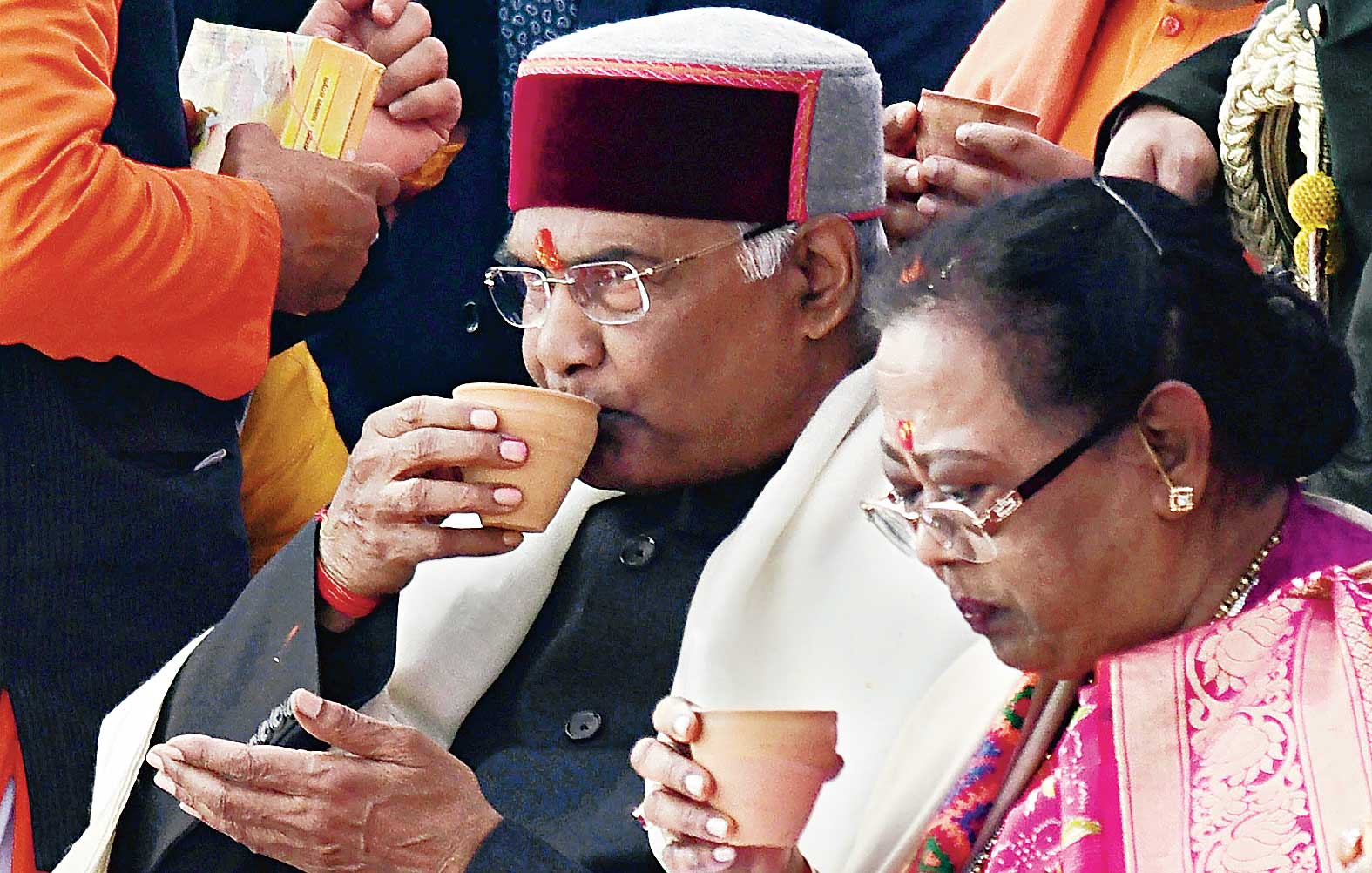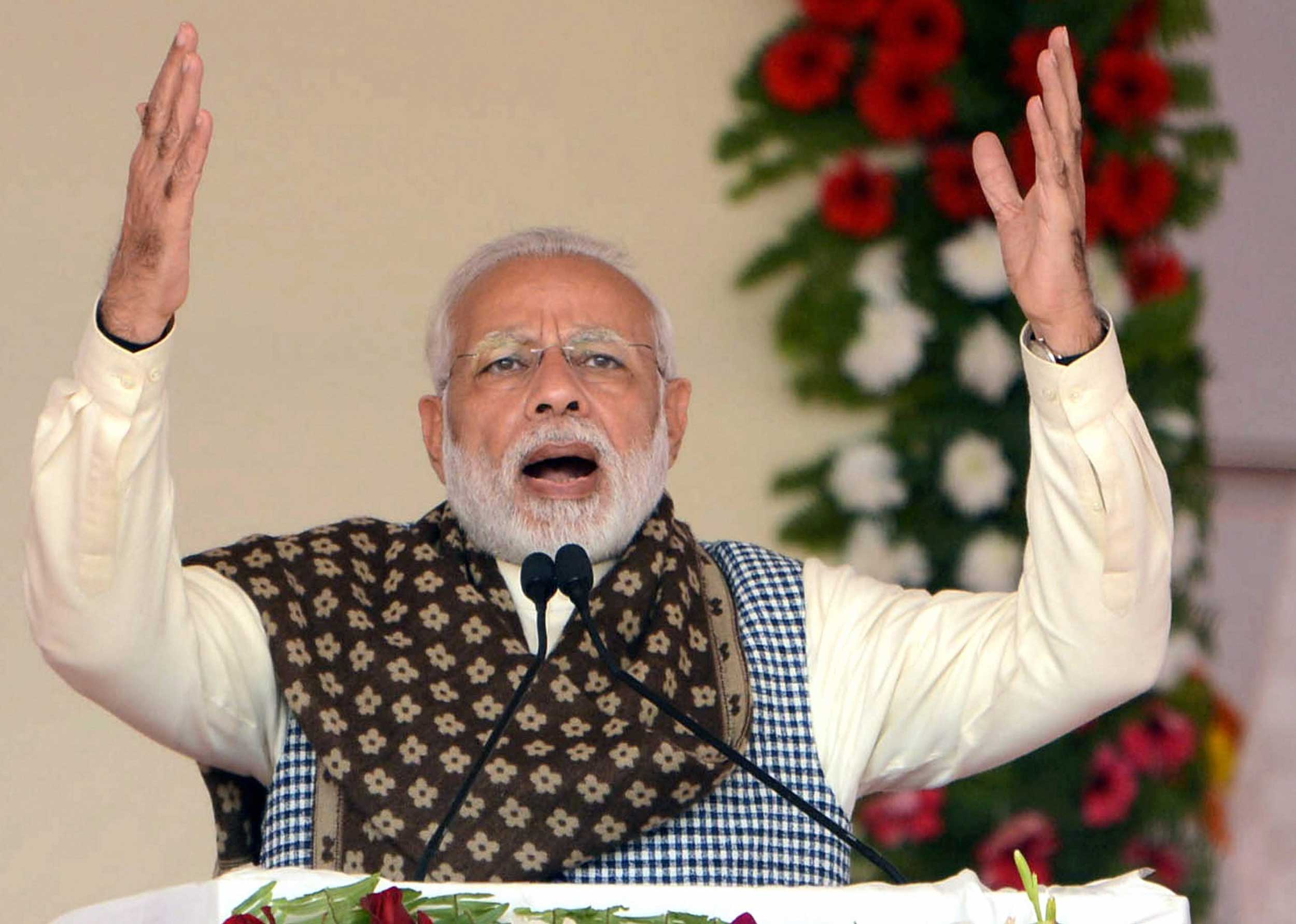The Union human resource development ministry has replaced the President with “any dignitary” chosen by it as the person who will give away the annual Presidential Award of Certificates to scholars of Sanskrit and some other languages.
Disappointed Sanskrit scholars have said the decision is “an embarrassment” for the recipients and “lowers the dignity of the award”. Till now, the President alone used to hand over the annual, six-decade-old award.
A ministry notification issued on January 4 says, in the column on “level of presentation of award”, that it will be presented “through any dignitary as decided by the ministry of HRD”.
The award was introduced in 1958 to honour scholars of Sanskrit, Arabic and Persian. An award for Pali or Prakrit was added in 1996, while classical Kannada, classical Telugu, classical Malayalam and classical Odia were included in 2016. Altogether, 34 awards are given. The awards for 2017 and 2018 are pending. If the awards are given this year, it’s possible that the previous two years’ awards too may be given away along with them.
Sources said the ministry decision had come after the office of President Ram Nath Kovind indicated his reluctance to give away so many awards at a stretch.
Ashok Malik, press secretary to the President, said Kovind had in the past indicated that events he attends should last “around one hour”.
“I’m not aware of this particular award but the President had indicated in the past that the durations of programmes, like convocations and award ceremonies he is attending, should be around one hour. This does not apply to national events like the Republic Day programme or the Padma awards,” Malik said.
The one-hour rule had led to a move to have Kovind hand over only the top prizes at the National Film Awards in May, with I&B minister Smriti Irani giving away the rest. This had prompted some 55 winners to skip the event to air “discontent”.
An email to the HRD ministry seeking its perspective has remained unanswered.
“This is a presidential award; being given away by anybody else will lower its dignity,” said D.K. Jha, president of the Sanskrit Shikshak Sangh, an organisation promoting Sanskrit.
He said the ministry’s decision reflected its lack of interest in the award or the Sanskrit language.
The Sangh’s website has a picture of Prime Minister Narendra Modi accepting a document from the organisation. Its clout is reflected in its successful campaign in 2014 against the Kendriya Vidyalaya Sangathan allowing German to be taught as one of the third languages from Class VI to VIII.
Meera Dwivedi, an associate professor of Sanskrit at Delhi University, said that since the awards carried the “Presidential” tag, no one else could give them away. “It is the Presidential award. If someone else hands it over, it will be an embarrassment for the scholars receiving it,” Dwivedi said.
The ministry’s notification, however, said the President would approve the selection of the awardees.
According to the ministry website, “the distinction is conferred on the eve of Independence Day every year in recognition of the outstanding contribution of various scholars of eminence over 60 years of age”.
“This scheme envisages a monetary grant of Rs 50,000 per annum for life, apart from a sanad and a shawl, which is presented by the President to each awardee,” it adds, implying it hasn’t been updated recently.
There are 15 awards for Sanskrit, three each for Arabic, Persian, classical Telugu, classical Kannada, classical Malayalam and classical Odia, and one for Pali or Prakrit.












